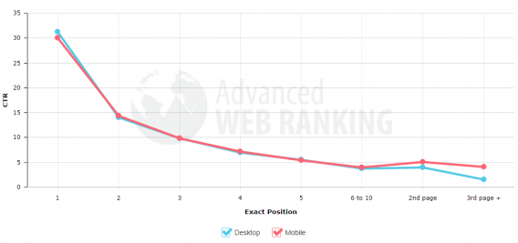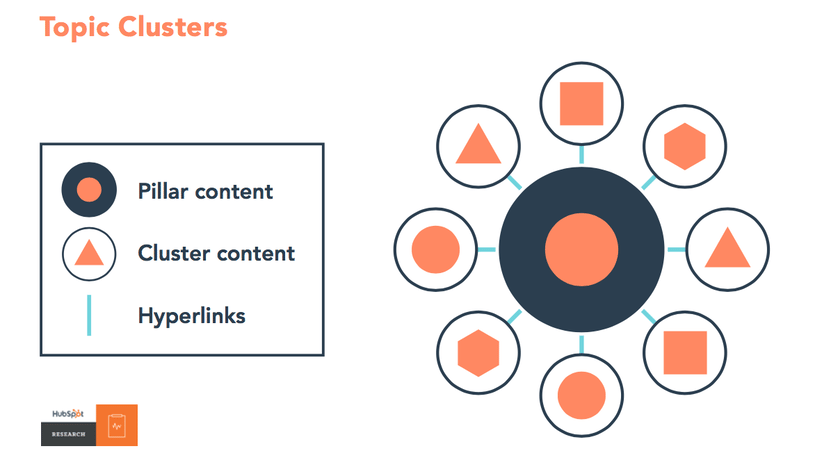Top five factors Google uses to decide where to rank your website

Whether you talk to an SEO expert, a business owner, or a marketing specialist, you will always hear different theories about the signals Google uses to assess the authority of your website and assign your ranking. To say Google’s algorithm is a minefield is a pretty big understatement and, believe it or not, even the Google engineers themselves find it somewhat of a mystery. This is because machine-learning algorithms, such as Google’s, are opaque - even the programmers of the AI can’t see them.
Mind-boggling, isn’t it?
As an inbound digital marketing agency, we’re up-to-date with the latest to ensure our clients get the best chance of increasing their rankings. So, in this post, we reveal our top tips for how to rank higher on Google and start seeing the results you need!
Here’s what we know
Google uses signals to help determine where you rank. These signals include Click-Through Rate (CTR), number of backlinks, and quality of content, as well as others. Rather than weighing one particular signal above all others, Google’s approach to assessing authority is more ‘holistic’, taking everything into consideration. Therefore, focussing purely on just one signal while ignoring others is not a great shortcut to results.
“You need to pay attention to how you present your business as a brand.” - Stephan Spencer
So, from backlinks to content strategy, you need to take a multi-pronged approach to your digital marketing. That’s why, in this blog post, we highlight the top five factors you should be taking into account to make sure your website gets on the right side of Google’s algorithm.

1. Link building
This is still a cornerstone of SEO, but it’s all about quality, rather than quantity. Focus on getting backlinks from highly-reputable sites, normally those with a Domain Authority (DA) of 30 or above. No longer is it advisory to spam people with generic emails with the offering of a guest post. You need to develop your authority on a subject in order to offer real value. This can take time, but the payoff is well worth it - getting a high-authority site to link back to yours will begin to positively impact your traffic and rankings.
To build more links, there’s a number of things you can do, including:
- Build relationships with top influencers in your industry who may be open to sharing your content on their website (you’ll need to have quality, content that is informative and relevant)
- Writing guest blog posts for relevant, authoritative sites
- Join directories and associations relevant for your audience or industry - they’re often free and even for a minimal membership fee the back link gained can be worth it!
2. Click-Through Rate (CTR)
Click-Through-Rate (CTR) is a metric used to measure the number of people - literally - clicking through to your website. It tells you how many people clicked onto your website out of the total number of people that saw it on Google’s search engine results page. You can optimise your CTR by implementing SEO techniques on your website.
Of course, you’re going to want to ‘rank top’ for your target keywords. After all, the proportion of clicks driven by top positions in the organic search listings are much higher than those ranked further down Google’s search engine results page (SERP):
The question is - does Google actually use CTR as a ranking factor? Put simply, if a website ranking low on the SERP gets a stunningly high CTR, would Google bump it up to the top? The truth is, if your website gets a higher CTR than what Google expects it to, then you stand in good stead to be placed higher up the rankings. Optimising your content for keywords with a good search volume but an achievable difficulty rating will ensure that you start to rank higher up the SERP and therefore stand more of a chance to achieve a higher CTR.
“Optimizing CTR, then, is good for two reasons. First, it likely improves organic rankings (and what ranks towards the top gets clicked more). Second, if more people click on your search result, you [get] more traffic.”
So, to find out exactly how you can optimise your CTR and excel Google’s expectations, talk to an inbound digital marketing agency, who will guide you through the process of implementing effective SEO to rank higher on Google.

3. On-page SEO
As an inbound digital marketing agency, one of the main things we help our clients with is on-page SEO; little or no optimisation will cause your site to suffer. The web is an ever increasingly competitive space - battling it out for top rankings has never felt trickier. So, to give your website the best chance, you need to make sure you’re implementing the following SEO techniques…
Keyword
Do some keyword research into the terms you wish your page to rank for. You need to make sure that you get a good balance between keyword volume and difficulty to give you the best chance of ranking. Using software such as SEMRush’s keyword analyser will help you identify the best ones for your business. When you come to optimising a web page, be sure to implement your chosen keywords 3-4 times throughout your content, without it being too obvious.
Metadata
Once you have identified the keyword you wish to rank for, you need to optimise your page for it. This includes adding it to the metadata. The term ‘metadata’ may sound technical, but it’s actually quite simple - it’s a way to tell the searcher what your content is about. When you search in Google or another search engine, you will see a list of results containing a link followed by a short description. The link is the title tag, and the description is the description tag:

You need to ensure that your keyword is within these two tags, keeping within the character limit, and ideally as close to the beginning as possible
4. Content strategy
It’s always good to have a plan. Knowing what you’re going to write about and why will help you to produce helpful, relevant and timely content that your customers love to read. Find out what works for you - for example, long-form content has proven to be effective when it comes to boosting your Google rankings.
To really make the most of your content, you need to build topic clusters. This is a more sophisticated strategy used by marketers; it’s a way of showing Google that you’re producing organised, authoritative content with loads of useful information for your readers.
A single ‘pillar page’ acts as one overarching topic and is longer than a typical blog post. The shorter pages can go into more depth into specific areas of this topic, linking back to the main pillar page by hyperlinking the keyword. To find out more about how the topic cluster strategy works, check out this post

5. Page load speed
The speed of your website affects your overall user experience. It’s a big factor when it comes to on-page SEO - a faster website keeps your customers happy, and so Google is more likely to boost your ranking. It’s not certain what metrics Google uses to determine your site’s loading speed, but it’s likely that it uses a combination of measurements. So, to increase the speed of your website load time, you can optimise your images, using smaller file sizes, and use a faster web host. Other ways in which you can improve your speed load is by minifying the coding found on your page, including…
- HTML
- CSS
- JavaScript
Using Google’s PageSpeed tools will help you identify areas of improvement for your website. Essentially, the easier your website is to use, the better!
Inbound digital marketing agency
An inbound digital marketing agency can help you to identify where you can improve your website to enhance its chances of ranking higher on Google. At Angelfish Marketing, we offer a free SEO audit, where we will run an assessment of your site and suggest where you can optimise.
Performing an SEO audit will allow you to:
- Monitor your SEO progress
- Get the most from your social media channels
- Fully understand your keywords
- Improve your overall site performance
- Review what your competitors are doing
Once we’ve completed this audit, we can help you develop a tailored approach to your inbound marketing strategy so you can clearly see what SEO techniques you need to implement so that your website ranks higher on Google. So, get started by clicking the link below.

Ready to Unlock AI SEO for Your Business?
AI SEO isn’t coming — it’s already here. Capture high-intent traffic and build sustainable pipeline growth.
Get Your Free Audit

